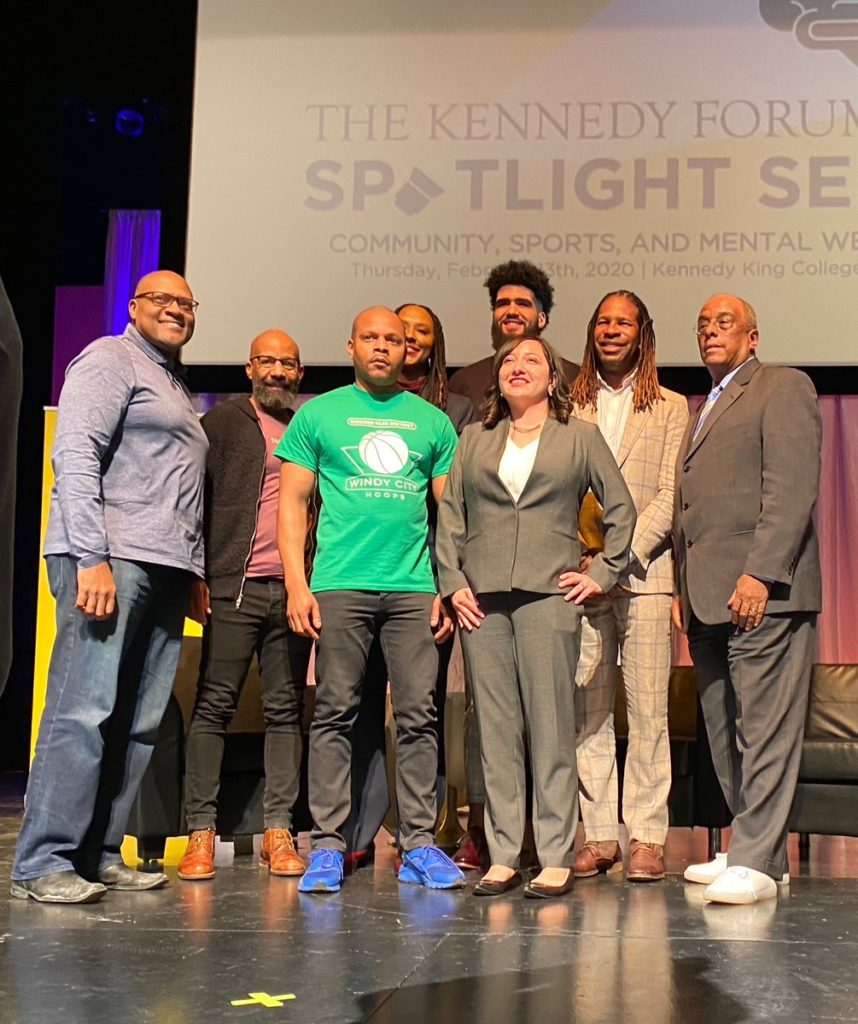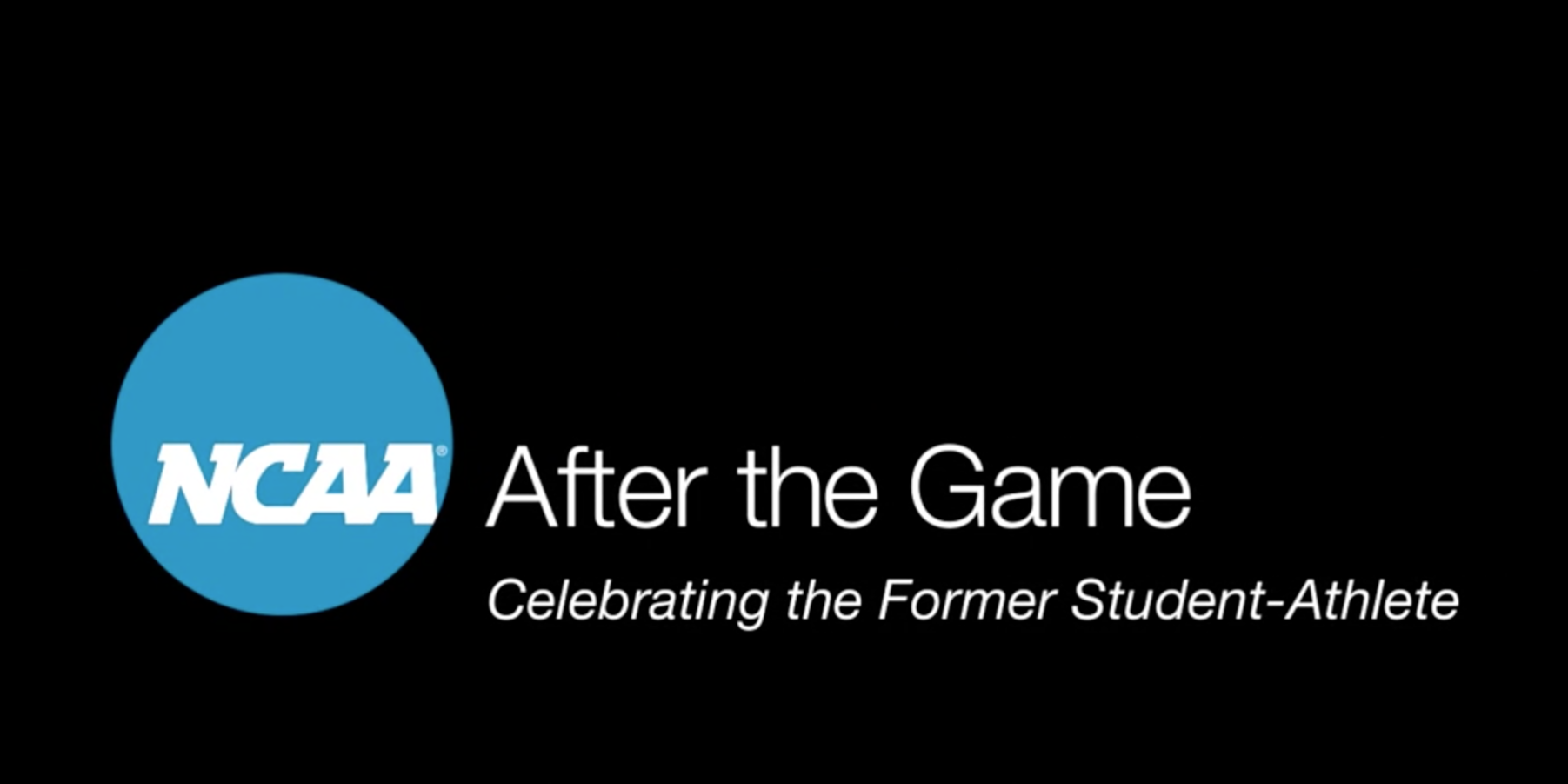The theme for this year’s The Kennedy Forum Spotlight Series focused on the intersection of Community, Sports, and Mental Wellness. Sharing a city with NBA All Star weekend there was a heavy emphasis on the game of basketball in particular. However, one of the highlighted panelists was Jessica Wagner who was not there to speak on athletes of a specific sport but athletes of a specific demographic: student-athletes.

Jessica is the first nurse at the National Collegiate Athletic Association (NCAA). She creates programming and public health initiatives to support the health and wellness of student-athletes, affecting nearly half a million-collegiate student-athletes all across the country. Her other titles include being the Associate Director of Prevention and Health Promotion for the NCAA, where she studies and aims to address the root causes of health issues impacting students.
Jessica and the work she is doing is extremely important during a time where the NCAA has admitted to facing an uphill battle when it comes to the mental health of their student-athletes. In today’s world, elite student-athletes face pressure and challenges that those in their position years ago never faced. College athletics has never been bigger or more profitable than it has today due to large television deals and the emergence of social media. Some athletes get a sense of superstardom that before was only possible to experience once making it to the professional ranks. Not only can this pressure be daunting, but sometimes it makes us forget an athlete’s first priority. Jessica says, “we need to educate the entire community to be engaged with student athletes. First and foremost, they are students, and they need support.”

Sometimes it is easy for us to forget the “student” in being a student-athlete, and it is just as easy to forget that they are also people who experience mental health challenges at the same rate as the regular population. The difference is, student-athletes seek help at an astonishingly lower rate. About a third of all college students experience significant symptoms of depression, anxiety or other mental health challenges. Among that group, 30% will reach out and seek professional help. But of college athletes with mental health conditions, only 10% do. Jessica suggests we take a proactive approach to this: screening student athletes for mental health as soon as they arrive on their campus.
While this approach is merely an idea, more concrete plans are already in action. Jessica told us about a NCAA initiative called “After the Game.” This program emphasizes mental health and wellbeing after college athletes graduate, a transition that can be emotionally draining for student athletes. After the Game is a community made up of 4 million former student-athletes from more than 1,100 universities that help support and offer career development, resources, networking, engagement, and promotion of their well-being and continued lifelong connection to college sports.
While the actual act of seeking help is still a present issue, Jessica says that athletes from all three levels of NCAA athletics “agree that they’re number one health concern is mental health.” The transition out of a sport that many athletes have dedicated their blood, sweat, tears is a tough process that athletes are often never prepared for. After the Game is the next step in addressing the mental health concerns of our student-athletes. Prevention is the name of the game and we commend the NCAA for their proactive attention to this important issue.







